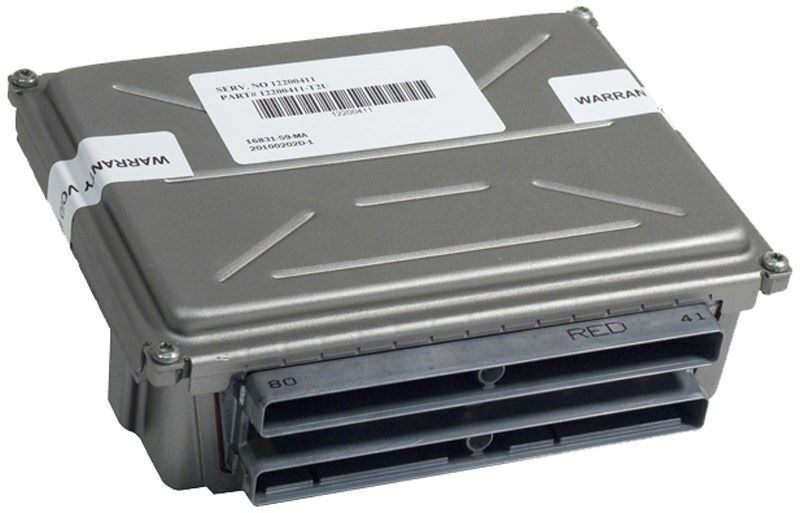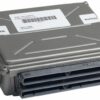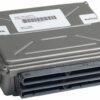Is Your Truck or Van Running Rough? Get Back on the Road with Confidence.
When your hardworking GM truck, van, or SUV starts acting up, it’s more than an inconvenience—it’s a major disruption. If you’re dealing with a persistent check engine light, poor fuel economy, stalling, or a vehicle that just won’t start, a failing Powertrain Control Module (PCM) is often the culprit. This isn’t just a part; it’s the brain of your vehicle’s engine and transmission. We offer a reliable, direct-fit solution with this professionally programmed PCM, designed to restore the performance and dependability you count on every single day.
Common Symptoms & Your Solution
A faulty PCM can cause a cascade of frustrating issues. You might be experiencing one or more of the following:
- Check Engine Light (CEL) with communication-related Diagnostic Trouble Codes (DTCs) like P0601, P0602, P0605, or P0606.
- Engine Stalling or Misfiring: Unpredictable engine behavior that makes driving unsafe and stressful.
- No-Start Condition: The engine cranks but refuses to start, leaving you stranded.
- Poor Performance & Fuel Economy: A noticeable loss of power and more frequent trips to the gas station.
- Failed Emissions Test: Inability to pass state inspections due to module-related faults.
This module is the definitive solution. We take a genuine OEM unit and program it with the very latest GM-certified software updates, tailored specifically to your vehicle’s VIN. This ensures that when you install our 2003 Yukon XL 2500 PCM 12570558, you’re not just replacing a part—you’re installing a fully updated and optimized brain for your engine.
Features & Benefits
- ✔ VIN-Specific Programming: We flash the module with your vehicle’s exact VIN, ensuring it communicates perfectly with your truck’s systems right out of the box.
- ✔ Plug-and-Play Installation: No need for an expensive trip to the dealership for programming. Once you receive the part, you can install it and perform a simple security relearn procedure.
- ✔ Updated GM Software: Your module arrives with the newest calibrations from General Motors, often correcting factory bugs and improving engine efficiency and transmission shifting.
- ✔ Guaranteed Compatibility: This unit is a direct replacement for service numbers 12570558, 12581565, 89017733, and many others, ensuring a perfect fit for your vehicle.
- ✔ Restored Dependability: Eliminate the guesswork and frustration. This is the core component needed to get your engine running smoothly and reliably again.
- ✔ Warranty Protection: This unit is backed by our one-year replacement warranty.
Expert Insight: Why VIN Programming is Non-Negotiable
Many sellers offer “blank” or used modules, but this is a recipe for disaster in modern vehicles. Your GM truck’s PCM is part of a complex network that includes the anti-theft system (Passlock/VATS), instrument cluster, and other modules. Without precise VIN programming, these components cannot communicate, resulting in a no-start condition or a flood of error codes. Our process ensures this critical digital handshake happens flawlessly, saving you hours of diagnostic headaches and the cost of a tow to the dealer. We handle the complex part so you can get back to work.
Frequently Asked Questions
Do I really need to provide my VIN?
Yes, absolutely. Providing your Vehicle Identification Number (VIN) is mandatory. We use it to load the correct, vehicle-specific software and calibrations from GM. Without it, the module will not function in your vehicle.
Is this part difficult to install?
The physical installation is straightforward for anyone with basic mechanical skills. It typically involves disconnecting the battery, unplugging the electrical connectors, and unbolting the old module. After installing the new one, you will need to perform a security relearn procedure (often called a CASE relearn), which can usually be done without special tools. Instructions are widely available online for your specific model.
Will this fix my check engine light?
If the check engine light is caused by an internal failure of the original PCM (common codes include P0601-P0606), then this part is the correct fix. It is crucial to ensure your vehicle’s underlying mechanical and electrical issues (e.g., bad sensors, wiring shorts) have been addressed first, as a new PCM will not fix a separate problem.
What is the difference between a PCM, ECM, and ECU?
The terms are often used interchangeably. PCM (Powertrain Control Module) is most accurate for these GM vehicles as it controls both the engine and transmission. ECM (Engine Control Module) and ECU (Electronic Control Unit) are more general terms. For your vehicle, this part serves as the central PCM.
How fast will I get my programmed 2003 Yukon XL 2500 PCM 12570558?
We program and ship your module promptly after you provide your VIN. The programming process is typically completed within one business day, after which it is shipped out to you according to the shipping method you select at checkout.


